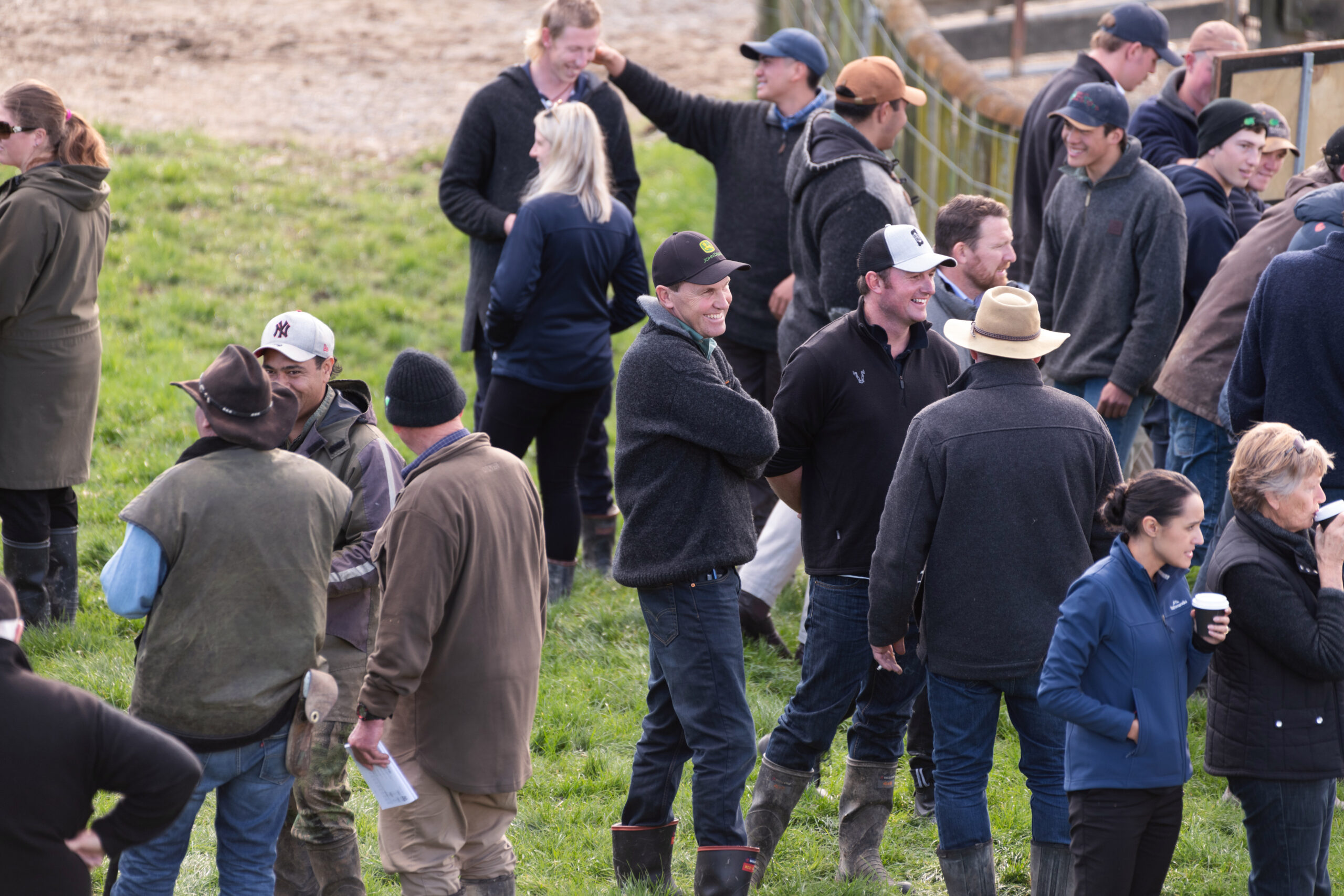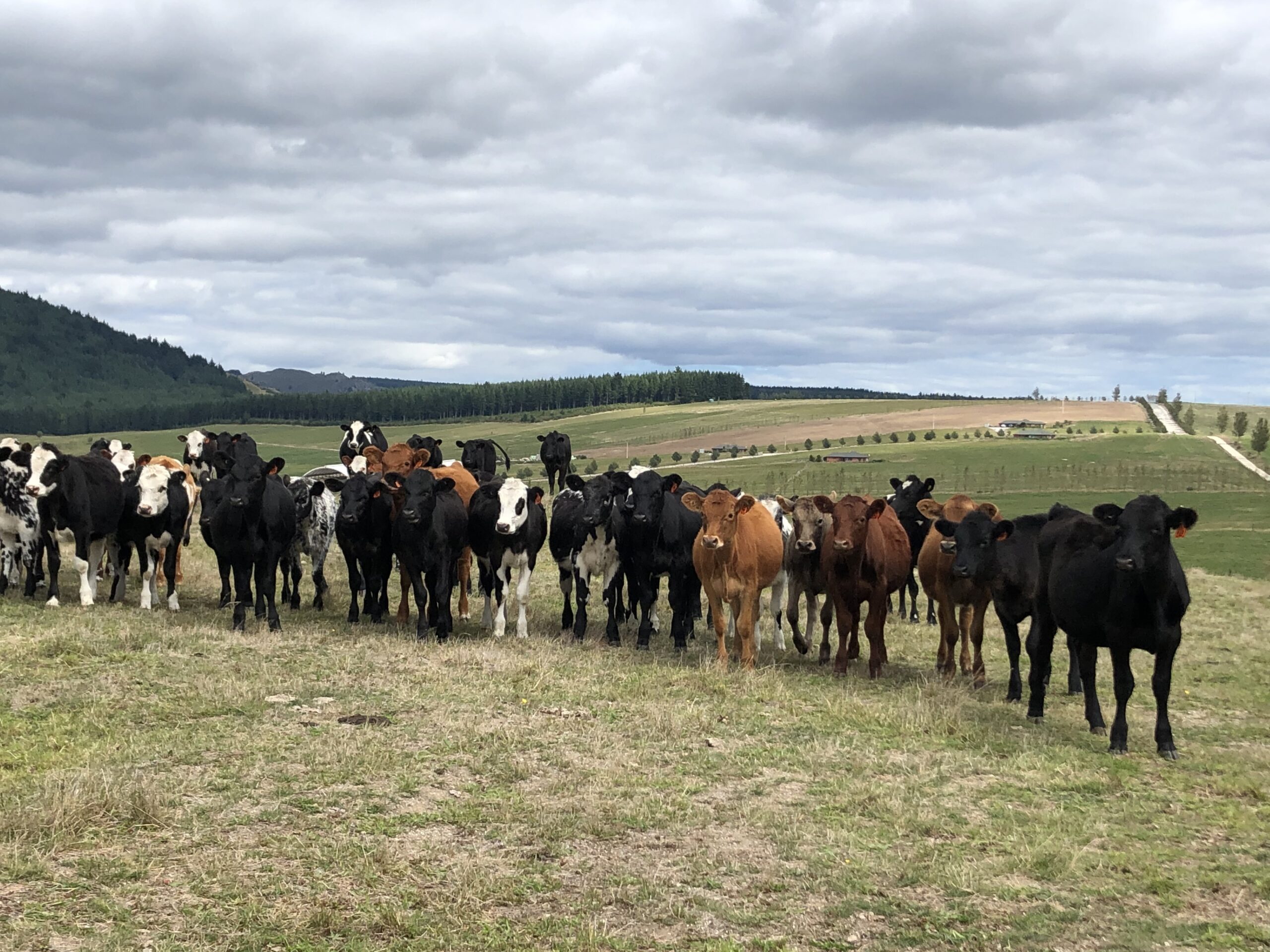When used across dairy cows, superior beef genetics can improve gross margins for finishers and improve feed conversion efficiency.
This was one of the conclusions in a report summarising the findings of the Beef + Lamb New Zealand Genetics’ Dairy Beef Progeny Test.
Written by farm consultant Bob Thomson, the report summarises the findings of a whole- farm modelling process, where the progeny of the highest-ranked beef bulls from the Dairy Beef Progeny Test (DBPT) were compared with the progeny of average bulls.
These showed a 15 per cent growth advantage at 400 and 600-days compared to the average bulls. This would improve gross margin returns by between $211 and $261/ha and improve feed conversion efficiency by up to 9 per cent. This in turn would reduce greenhouse gas emissions.
The modelling demonstrated that when the top 10-15 per cent of DBPT bulls for marbling (intramuscular fat) were compared with the average DBPT bulls, there was a 27 per cent improvement. This correlated with an increase in the strike rate with beef quality supply programmes.
The modelling also compared one- and two- winter finishing policies and highlighted clear advantages and disadvantages to both. The ranking of DBPT bulls did not change between the two policies.
Compared to the two-winter, the one-winter system occupied one-third less land area with 15 per cent more feed conversion efficiencies. The disadvantage was in lighter carcase weights.
CLEARER COMMUNICATION NEEDED BY DAIRY FARMERS
Dairy farmers could be faced with a ‘no bobby calf kill’ policy in the future, and if that were to happen, they would either have to produce calves that have value as a beef finishing animal or reduce cow numbers to accommodate the rearing of surplus calves.
“Either way, the value of the surplus calves can be raised significantly by dairy farmers utilising high genetic merit beef bulls over the dairy cows which are not required to generate their dairy replacements,” says Mr Thomson.
Dr Jason Archer, Informing New Zealand Beef programme (INZB) science lead, says one of the challenges for the industry is to ensure the information dairy farmers need when selecting recorded, high genetic worth bulls is presented simply and its relevance to the beef x dairy system is clear.
At a recent field day, dairy farmers said some of the terminology used in the beef industry did not translate directly to that used in the dairy industry.
BW, for example, means birthweight to beef farmers and Breeding Worth to dairy farmers.
He says out of the 20-25 numbers presented in bull catalogues, there are four that are of greatest relevance to dairy farmers, and these are calving ease, gestation length, carcase weight and IMF (intramuscular fat). Of these, calving ease and gestation length are important to the dairy operation, while carcase weight and IMF are important to the finisher of the calves.
Dr Archer encourages suppliers to make the message clearer to ensure dairy farmers get the information they need when selecting recorded bulls.
“Revenue from surplus calves is only a very small part of a dairy business and this reinforces the need to communicate clearly and simply to ensure they get the information they need and it’s not lost in the complexity of an excessive amount of estimated breeding values. These other traits are important for beef farmers generating replacement beef heifers, but are much less important when choosing bulls to mate dairy cows.”
He says dairy farmers do see value in using recorded bulls as it gives them the ability to present lines of even, well-marked calves to rearers and/or finishers.
DAIRY BEEF PROGENY TEST
The purpose of the DBPT, which began in 2015, was to identify high genetic merit beef bulls that would benefit both dairy and beef farmers. Over the course of the programme, detailed and comprehensive phenotypic data has and continues to be collected, analysed and reported for a range of traits including gestation length, calving ease, growth rates, carcase weight and carcase quality.
The trial includes a number of beef breeds with around 20 new bulls being progeny tested every year.
All of the cattle in the progeny test are born on Pāmu’s Renown farm at Wairakei Estate and reared and finished under commercial conditions at Pāmu’s Orakonui farm, also at Wairakei Estate.
You can read the full farm modelling report by visiting beeflambnz.com/knowledge-hub and searching “dairy beef progeny test”.


